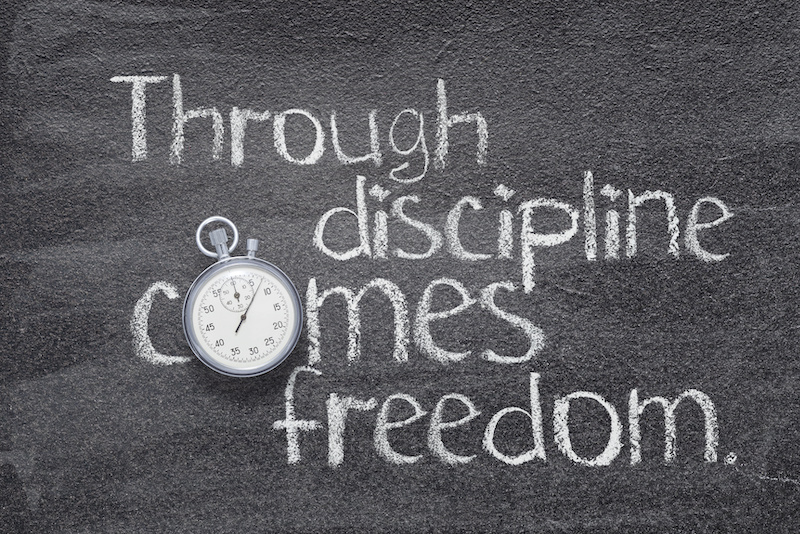Why is it So Hard to Be Assertive? 5 Skills You Can Learn

Why is it so hard to be assertive? There are some very good reasons why it’s such a struggle for so many.
The first reason is that lots of people think they know exactly what assertiveness is, but they actually only know half of the definition.
That missing half makes a huge difference.
Pause for a moment here and think about what “assertive” means to you. Come up with your own definition.
Did your definition describe standing up for yourself? Speaking your mind? Telling people how you feel or what you think? If so, you got it mostly right. This is the aspect of assertiveness which most people are familiar with.
Now let’s talk about the other half. In some ways, it’s the most important half. So, enough build-up. Here’s the true, full definition.
Assertiveness: Speaking up for yourself — in a way that the other person can hear.
These two aspects of assertiveness, and how they work together, are what make assertiveness a skill which must be learned, rather than a natural ability. Most people have a hard time with the first half or with the second half, and many folks struggle with both. Also, our ability to be assertive varies with the situation, the people involved, and the amount of emotion that we are feeling at the time.
Most people err in one of two primary ways when they try to be assertive: they come across too weakly, making it too easy for the other party to discount their message; or they come across too strongly so that the other party becomes too hurt or too defensive to listen. Once the recipient’s defenses rise, your message will be lost.
No one struggles more with assertiveness than those who grew up in households where emotions were ignored (Childhood Emotional Neglect, or CEN). These emotionally neglectful families do not have the vital skills required for assertiveness because they do not understand emotions, or how they work. They do not know the Five Skills of Assertiveness, so they are not able to teach them to their children.
If you grew up in an emotionally neglectful family, it’s important to acknowledge that you struggle with these skills for a reason. And it is not your fault.
In a minute we will talk about how you can learn the skills, but first let’s consider the skills themselves.
The 5 Skills of Assertiveness
- Being aware of what you are feeling in the middle of a difficult, possibly intense situation
- Trusting that your feelings and ideas are valid and worthy of expression
- Managing your feelings, possibly hurt or anger combined with an endless possible number of other feelings, and putting them into words
- Understanding the other person or people involved, imagining what they are likely feeling
- Taking into account the situation and setting
When you put these five skills together, you are able to say what you need to say in a way that is appropriate to the setting, situation, and people involved (not too strongly or weakly), so that the recipients can process your message without their defenses being ignited. Keep in mind that talking to a defensive person is like talking to an inanimate object. Your message will not get through.
You can see from these steps why assertiveness requires not just skill, but a constellation of skills. This is why if it’s hard for you, you are not alone.
The good news is that it is entirely possible to build your assertiveness skills. If you keep all five skills in mind, you can work on building them. Follow these special suggestions to learn these vital skills.
4 Ways to Build Your Assertiveness Skills
- Pay more attention to your feelings all the time.
- Make friends with your emotions. When you value your feelings, they will become your most valuable life tool. They will tell you when you need to speak up or take a stand. They will motivate and energize you when you need it the most.
- Begin to build your emotion management skills. For example, increase your emotion vocabulary, and try to use those words more often in your daily life.
- Take every opportunity to stand up for yourself, as best you can. If you miss a chance or do it wrong, it’s OK! Just review the situation afterward to determine what you wish you had done. The more often you do this, the more you will learn, and the easier assertiveness will become for you.
There is so much more to learn about Childhood Emotional Neglect. Sign up for my Free CEN Breakthrough Video Series!
Growing up in an emotionally neglectful family leaves you struggling with many emotion skills that other people take for granted. To find out if you grew up with Childhood Emotional Neglect (CEN), Take The Emotional Neglect Questionnaire. It’s free.
4 Reasons Therapists Don’t Talk Enough About Childhood Emotional Neglect

Childhood Emotional Neglect (CEN): A parent’s failure to respond enough to a child’s emotional needs.
“After reading Running on Empty I told my therapist that I’m pretty sure I was emotionally neglected as a child. He seemed to understand what I meant but he never mentioned it again”.
“I’ve been seeing my therapist for a year and she has never mentioned Emotional Neglect to me.”
“I want a therapist who is an expert in Childhood Emotional Neglect!”
Since I first started speaking and writing about Childhood Emotional Neglect (CEN) in 2012 I’ve heard the above comments many times, from people all over the world.
Yes. In a way, it is puzzling. CEN is so widespread and causes so much pain. Why don’t therapists talk about it more directly and more often? Why aren’t all therapists addressing this with their clients?
This is one of the main reasons that I took up the cause of CEN. After talking with other mental health professionals and doing an exhaustive literature search, I could find virtually no research or writings specifically about Emotional Neglect. And I couldn’t identify a recognized, accepted, universal term for the concept that meant the same thing to every mental health professional.
It seems that just as an instance of CEN goes unseen and unnoticed, so does the CEN child himself. In a case of parallel process, so does the concept of CEN. To virtually all therapists, the basic idea that parents fail their children emotionally is not surprising or new. Remarkably, I think that’s part of the reason that therapists don’t talk about it. For us, it hides in plain sight.
4 Reasons Therapists Don’t Talk About Childhood Emotional Neglect
- For therapists, CEN hides in plain sight. It’s so ubiquitous and such an integral part of Attachment Theory (a basic tenet for mental health professionals) that therapists just know it. It’s like the blurred backdrop behind the picture. In the mind of a therapist, CEN is not a thing. It just is. So we’ve never bothered to give it a specific name.
- Research. Therapists don’t necessarily think of CEN as the cause of the specific pattern of adult symptoms that I have identified and described in my book, Running on Empty: Overcome Your Childhood Emotional Neglect. So as of now, there is no body of literature or research for them to consult. Establishing research data to support the pattern is my next goal. In the meantime, the only source of this full picture is the book, Running on Empty.
- Memories. Most therapists like to deal with memories and facts as much as possible. Since CEN is emotional and unmemorable, most people who are living with it have no actual memories to report to their therapist.
- Eclipsed and Blurred – “Child Abuse and Neglect.” When I scoured the professional literature for mentions of Emotional Neglect, I found many references. But it was virtually always as part of this phrase: “child abuse and neglect.” I realized that this phrase has contributed to CEN being so overlooked. Unfortunately, the ubiquitous use of “child abuse and neglect” has taken the concept of Emotional Neglect and thrown it into a pot mixed with three other things which are far more visible and memorable:
- Physical abuse: hitting, physical threatening of a child.
- Physical neglect: not providing enough food, shelter or warm clothing, for example.
- Emotional abuse: actively saying damaging things to a child, calling the child names, for example.
In this way, I think the phrase “child abuse and neglect,” which is so ubiquitous and useful, has actually done an inordinate amount of untold damage by blurring awareness of CEN.
For me, right now, my goals are unwaveringly clear. I want to make CEN a part of everyday conversation in this world. I want parents to know how to meet their children’s emotional needs, and why it matters.
I want every single person to be able to talk openly and directly about CEN with a therapist who understands the concept and knows the path to healing it.
I want every therapist to mean the exact same thing when they use or hear the term Childhood Emotional Neglect.
Think of all the children who are, at this very moment, growing up surrounded by Emotional Neglect. And all the adults who are suffering in silence, baffled by their pain.
If I could speak for all the therapists in the world, here is what we would say to them:
Your pain is real. It’s not nothing. You have it for a reason. It’s not your fault.
You feel invisible, but we see you. You can speak and we will listen. So stand up and talk. And let us help you heal.
To learn if CEN is a part of your life, Take The Childhood Emotional Neglect Questionnaire. It’s free.
Over 500 therapists located all over the world have now been trained in CEN therapy. Visit the Find A CEN Therapist List.
If you are a therapist and would like to join the CEN Network and receive referrals from me, I invite you to Fill Out The CEN Therapist Form.
To learn more about Childhood Emotional Neglect, see my first book Running on Empty.
Were You Raised in a Passive-Aggressive Family?

Show me a family that has no anger in it, and I’ll dig out their anger and show it to them.
That’s my job. I’m a therapist.
Every family has anger. It’s unavoidable in life and in a family, simply because it is literally wired into our brains. It’s a part of our physiology, just as our eyelashes, elbows, and toes. There are many ways that families can handle anger, depending on their comfort level with it.
They can wield it as a weapon, figuratively hitting each other over the head with it; they can push it underground, or they can ignore it and pretend it does not exist.
Or they can use it the way nature intended; as a way to drive truth, and connect family members in a genuine, real and meaningful way.
3 Types of Anger-Uncomfortable Families
The Anger as a Weapon Family: In this family, anger is used by one or more members as a source of power. Anger may be expressed in a variety of aggressive ways, like yelling, insults or barbed comments; by throwing things, breaking things, or other physical intimidation or threats.
- The Lesson the Children Learn: The angriest person wins.
The Underground Anger Family: This family views anger as unacceptable, or even bad. Angry feelings are viewed as unloving, uncaring or rebellious and are met with negativity or punishment.
- The Lesson the Children Learn: Anger is bad. If you feel angry, you are bad. Do not talk about it.
The Ignoring Anger Family: This family treats anger as if it doesn’t exist. When a member of the family shows anger, it receives little response. Anger is invisible.
- The Lesson the Children Learn: Anger is useless. Don’t bother with it. Do not talk about it.
None of the children growing up in these three types of families has an opportunity to learn much about anger: how to listen to its message, manage it, express it, or use it in a healthy way. By definition, all of these children are growing up in an emotionally neglectful family.
All of these children are receiving this message: Don’t talk – don’t talk – don’t talk. No one wants to know when you are angry.
But let’s focus in particular on The Underground and the Ignoring Families, because they have one very big factor in common. They both are breeding grounds for passive-aggression.
Since anger is wired into the human brain, it happens in every human being, whether they want it or not. When you are in an environment that is chronically intolerant of this particular emotion you naturally, automatically suppress your angry feelings whenever they arise. This causes some major problems for you, and in your family.
Pushing anger down is like pushing water down. It has to go somewhere. So it may seep underground and sit there, or it may go slightly under the surface, and ripple and roil, waiting for a chance to spew.
In these two types of anger-intolerant families, the anger goes underground, but it does not disappear. It stays there. And it has to come out somehow, sometime, in some way.
Enter passive-aggression.
Passive-aggression: The indirect expression of anger and resentment, fueled by feelings that are not addressed and resolved by talking about the issues directly.
The Passive-Aggressive Family
Molly felt anxious and uncomfortable as she sat eating dinner with her family. She was acutely aware that her parents refused to speak to each other or make eye-contact.
Joel’s dad was an hour late to pick him up after soccer practice. As Joel sat on the curb waiting, he found himself wondering if his dad was angry about the argument they had the night before.
Jessica found it excruciating when her mother gave her the silent treatment. So she took great care to appear unaffected by it.
Many research studies have clearly established a link between passive-aggression between parents, and problems in the children.
One 2016 study by Davies, Hentges, et al., showed that children growing up in such an environment of indirectly expressed, unresolved hostility are more insecure, and take less responsibility for their own problems. They are also more prone to depression, anxiety, and social withdrawal.
Another difficult aspect of passive-aggression is that most people are completely unaware of their own passive-aggressive behavior. They are often, also, unaware of their own underground anger and resentment that’s fueling it.
Steps to Become Less Passive-Aggressive
Accept that you have anger. Accept that it’s normal and healthy, it’s valuable, and you can use it to make your relationships better.
Increase your anger awareness. Watch for anger in other people. Watch for it in yourself. When you start trying to feel your anger, you’ll start breaking down the wall that blocks it.
Read everything you can about assertiveness. It’s a skill that allows you to express your anger in a way that the other person can take in your message without becoming defensive. Buy a book on it if you can. Then read it!
When something happens that makes you feel angry, take note of the feeling. Practice sitting with it and tolerating it. Apply what you’ve learned about assertiveness.
And talk talk talk.
To learn how to deal with CEN in your marriage, your parenting and with your emotionally neglectful parents, see the book Running On Empty No More: Transform Your Relationships.
To learn much more about Childhood Emotional Neglect, see the national bestseller Running On Empty: Overcome Your Childhood Emotional Neglect.
Struggle With Self-Discipline? Follow This System Every Single Day

Many people struggle with self-discipline in many different ways and for many different reasons.
Do you struggle with:
Poor eating habits?
Overdrinking?
Overspending?
Getting yourself to exercise?
Wasting time?
Keeping a clean and organized house?
Making yourself do things that are boring or uninteresting?
Do you sometimes feel like you have no control over your own choices or actions in certain areas of your life? If so, rest assured that you are in the good company of countless others who feel the same way.
Most of those who struggle simply assume they are lazy or weak or defective in some way, but when you believe any of these things about yourself you are walking down a one-way street to nowhere.
Feeling defective makes you believe in yourself even less which makes you struggle even more. Feeling weak makes you hopeless and helpless to solve the problem, setting up an endless cycle of pain.
The reality is that almost no one who contends with self-control is doing so because they are weak or defective. Truth be told, I have often found the real cause of these problems to be Childhood Emotional Neglect or CEN.
Childhood Emotional Neglect happens when your parents fail to respond enough to your needs and feelings as they raise you.
“What could this possibly have to do with self-discipline?” you might ask. Here is the answer.
The Link Between CEN and Self-Discipline Problems
Actually, all self-discipline problems boil down to one simple mechanism that’s the foundation for it all. It’s the ability to make yourself do things you don’t want to do and to stop yourself from doing things you shouldn’t do.
We humans are not born with our “mechanism” fully functioning and developed. Instead, it is developed by our parents as they raise us.
When your mother calls you in from playing with your neighborhood friends because it’s dinnertime or bedtime, she is teaching you an important skill. She’s teaching you that some things must be done, even if you don’t feel like it.
When your dad gives you the weekly chore of cutting the grass and then follows up in a loving but firm way to make sure you do it, he’s teaching you how to make yourself do something you don’t want to do and he’s teaching you the rewards of that.
When your parents make sure you brush your teeth twice a day, when they say no to dessert, when they set aside and enforce “homework hour” every day after school because you’ve been slacking on homework, when they continue to love you but set your curfew earlier as a consequence of thoughtlessly breaking it; all of these parental actions and responses are internalized by you, the child.
Emotional Attunement = Teaching Discipline
All of these loving and attentive actions of your parents, when done with enough emotional attunement, structure, and love — in other words, the opposite of Childhood Emotional Neglect, literally program your brain. They set up neural pathways that you can use all your life to make yourself do things you don’t want to do and stop yourself from doing what you should not do.
Now, here’s another very important thing. When all of this happens as it should in your childhood, you not only internalize the ability to make yourself do things and to stop yourself from doing things, you internalize your parents’ voices, which later, in your adulthood, become your own.
Unfortunately, the opposite of everything we just discussed is also true. If you grow up in an emotionally neglectful home and do not receive enough of this emotionally attuned structure and discipline, you will emerge into adulthood without enough of the neural pathways you need. It’s not that you have none of these neural pathways. It’s just that you do not have enough.
I know what you are probably thinking so let’s talk about it:
So Is This All My Parents’ Fault?
No, not necessarily at all. All parents have their own personal struggles. Many grew up in emotionally neglectful homes themselves. Most parents do their best (not all, for sure) and give their children what they have to give. But sadly, in many cases of Emotional Neglect, the parents can’t give you what they did not have themselves: emotional attunement, structure, and discipline.
Another side of this to consider in all of this is you.
I hope that realizing that you are not defective takes you out of that destructive loop of self-blame. I hope now that you see that your parents failed you in this way it will free you up to think in new ways. I hope that understanding the underlying mechanism of self-discipline will inspire you.
For what? For taking responsibility for this problem now. For building your own neural pathways. For change.
It is never too late. As an adult, you can essentially re-parent yourself by rewiring your own brain. You can do it by using a remarkably simple but amazingly effective rewiring program I am sharing directly from my book Running On Empty: Overcome Your Childhood Emotional Neglect.
The 3 Things Practice for Building Your Self-Discipline
In this skill-building exercise, you will be wiring your brain with the hardware that’s essential to have in order to be able to make yourself do what you don’t want to do and vice-versa. To take full advantage of its power, you absolutely must do it every single day.
- Three times, every single day, make yourself do something you don’t want to do; or stop yourself from doing something you shouldn’t do.
It’s best to choose small, doable items that do not feel overwhelming. The size of the item does not matter, it’s the act of overriding what you want that programs your brain.
Three times. Without exception. Every single day. And don’t just do them, write them down.
To help you get a feel for this, I’ll give you some examples of Three Things that have worked for others:
Examples of Things to Make Yourself Do: Face-washing, bill-paying, exercise, floor-sweeping, shoe-tying, phone-calling, dishwashing or task-starting.
Examples of Things to Stop Yourself From Doing: eating a piece of chocolate devil’s food cake, buying a pretty necklace online, having that one more drink when out with friends, or skipping class.
Try to do this program regularly. If you slip, start right back up again. If you keep at it, you’ll notice that it will become easier and easier for you to self-regulate, manage your impulses, and complete unrewarding but necessary tasks. Your self-discipline will build and grow and eventually become an active, hard-wired part of who you are.
To learn much more about how Childhood Emotional Neglect happens and how to heal it, and to read more about the relationship between Emotional Neglect and self-discipline, see the book Running On Empty: Overcome Your Childhood Emotional Neglect.
Three things. Every day. You can do it.
4 Essential Ways to Cope With a Narcissistic or Sociopathic Person in Your Life

As a blogger, I pay attention to what readers want to know about. I’ve noticed that articles about three particular types of personality disorders (PDs), narcissistic, borderline and sociopathic, are often the most read.
Since my specialty (and the topics of my books and blogs) is Childhood Emotional Neglect or CEN, I can tell you that adults who grow up with emotional neglect often seem to attract people with personality disorders. That’s because CEN teaches you to take up little space, and those with personality disorders tend to take up a lot. It’s a classic case of opposites attracting.
People who find themselves involved with a personality disordered person may often find themselves getting hurt. I have noticed that the folks who comment on posts about PD’s very often express a mixture of strong emotions like confusion, hurt, anger and helplessness. Clearly, a great many people are hungry for information and guidance on how to handle relationships with these complex people in your lives.
Here are some example questions I’ve received from readers asking for guidance on dealing with a narcissistic or sociopathic person in their lives.
“Such a pity that escape (divorce) seems to be the only viable outcome. I’ve had to divorce my wife, but she still controls the minds of my now young adult daughters, so now I live with the pain of this alienation.”
“Does it serve a purpose to see a narcissistic parent’s condition coming from childhood emotional neglect? Yes. Once I realized that possibility, I looked at myself and realized how I often did to others exactly what my father did to me: because he left me with the same fragile sense of self. Fortunately I did not pass it on to another generation, having decided to end the bucket chain of abuse.”
The world is full of people who struggle with personality disorders. In truth, the numbers are staggering. 6% of the U.S. population has a narcissistic personality disorder. 5.6% has a borderline personality, and 1% has antisocial personality (according to the National Institute of Health).
With these numbers, there’s a reasonable chance that you’ve met, befriended, been related to, or fallen in love with at least one of these personality types.
These three personality disorders are all different. Narcissists are known for being self-centered. Those with borderline personality are known for being unpredictable and highly emotional. And antisocial personalities (or sociopaths) are famous for their brutality. Generally, these three PD’s can best be understood by their ability or inability to feel two very important emotions: guilt and empathy.
Guilt Empathy
Narcissistic Yes No
Borderline Yes Yes
Sociopathic No No
Here are the Four Main Questions About PD that I see you, our readers, struggling with:
1. What causes personality disorders?
We don’t know for sure, but current science tells us that it’s a combination of genetics and childhood experiences, such as emotional abuse and unpredictable parenting characterized by the repeated, sudden withdrawal of love and approval by the parent or love based on false, self-serving, or superficial factors. Neither nature nor nurture alone is probably enough to produce a personality disorder; most research indicates that it takes a combination of both.
2. Why didn’t I realize sooner that my husband/sister/father/friend, etc. has a personality disorder?
First, I’d like to suggest that you stop asking this question because it sounds like you are blaming yourself. The huge majority of people have no idea what a personality disorder is, or how to recognize it. Folks with narcissistic or borderline personality are not simply all good or all bad. They have very lovable qualities, and very maddening qualities, just like everyone else. This is why even mental health professionals require a good amount of time to make a diagnosis of personality disorder.
Sociopaths, however, fall into a special category of their own. Unlike people with borderline and narcissistic personalities, sociopaths have no capacity for guilt. But that is a very difficult thing to see in someone, especially when that someone is both highly charismatic and skilled at faking guilt and other emotions. Unfortunately, sociopaths, the most emotionally ruthless people among us, are also the most difficult to recognize.
3. Do people with personality disorders know what they are doing? Is he/she hurting me on purpose?
For sociopaths, the answer is simple: yes. Many sociopaths actually take pleasure in manipulating and hurting others. They view (and treat) the people in their lives like chess pieces.
For narcissists and borderlines, the answer is not so clear, because both of these groups are scrambling to protect their fragile inner core. The narcissist’s greatest fear is that you will see what he/she feels about herself deep down: worthlessness. Whereas the borderline person’s greatest fear is that you will abandon him.
Narcissists appear to not care if they hurt you, but it’s because they are extremely focused on protecting themselves. Borderline folks are at the mercy of their own pain and have little energy left over to offer care for others. They are capable of both guilt and empathy, but often cannot access either.
Most narcissistic and borderline people are not purposely inflicting pain or misery on others. They are more like a bull in a china shop.
4. I now hate someone I used to love. Is it OK to kick this person out of my life?
It all depends on what he/she has done, and what is your relationship with them. Of course, you must protect yourself and your children above all. And the type of PD you’re dealing with matters. Unfortunately, many people share traits from all three, making it difficult to know.
If this person is a family member, spouse or co-parent, and is not a clear sociopath, I recommend a delicate balance of self-protection and as much empathy as you can muster for the true pain that this person is living with and hiding.
Here are some Suggestions for Managing Your Relationship:
- NEVER malign your partner in front of your children because it will damage your children.
- Try not to demonize the person, even in your own head. No one is all bad, and everyone has pain. Work to hold in your mind a realistic picture of both the positives and the negatives of him or her.
- Keep communication with the person who is causing you pain to a minimum of what is necessary.
- Always behave politely, predictably, and choose kindness whenever possible.
- Never compete or try to beat them. It will be a losing battle for all involved, especially you.
- Always take the high road.
- Hurt and angry? Let your anger help you protect yourself, but don’t let it propel you to strike out at anyone or seek revenge. Use this as your mantra: The best revenge is living well.
- Live well.
To learn how to manage your relationship with a narcissistic or borderline parent, see the book Running On Empty No More: Transform Your Relationships. To learn how Childhood Emotional Neglect is different from emotional abuse and how to heal from it, see the book Running on Empty: Overcome Your Childhood Emotional Neglect.
A version of this article was originally published on psychcentral.com. It has been republished here with the permission of the author.
Group Discussion Questions for the Book Running On Empty: Overcome Your Childhood Emotional Neglect

Since the release of the books Running On Empty: Overcome Your Childhood Emotional Neglect and Running On Empty No More: Transform Your Relationships, people all over the world have been forming book groups, forums, family discussions, and Meetups to discuss them.
When you are working through the effects of Childhood Emotional Neglect (CEN) on your adult life, whether you are working with a CEN therapist or on your own, it is incredibly helpful to have support.
When another person talks about their own CEN childhood, their struggles to understand emotions and how they work, or the discomfort of a visit with their emotionally neglectful parents, it is validating and informative.
When you talk about your CEN experiences and struggles with others who share your pain, you learn about yourself, and you realize you are not alone.
After being asked many times to offer discussion questions for each book, I have finally created them.
Recommended Format for Discussion Groups
- Some of these questions are deeply personal, and not everyone will be comfortable answering every question. In the first meeting, decide together which questions or sections you might want to skip as a group.
- If there’s no full agreement on which questions to skip, then proceed with all questions with the understanding that any member of the group can choose not to answer any question without any explanation needed.
- I recommend you take the sections and the questions in order. Go through and have one person read the question and have each member answer it, one at a time with no interruptions.
- After each member has answered a question, take some time for group discussions, questions and reactions.
- If your group is live and wishes to be more structured, set a timer to limit discussion time so that you can move to another question. I highly recommend this but it’s not right for every group.
- If you feel your group needs a leader, one can be assigned who is approved by all members.
Discussion Questions for the Book Running On Empty: Overcome Your Childhood Emotional Neglect
Parents
- Compare “The Ordinary Parent in Action” described in Chapter 1 with your parents. How did they compare?
- Which category of emotionally neglectful parents describes your parents the best?
- Were your parents neglected themselves when they were growing up? If you are not sure, can you find out?
- Many people gloss over thinking about their parents and holding them accountable by saying, “They meant well” or “They tried their best.” Can you say this without a doubt, about your parents? Were your parents truly well-meaning?
- What did your parents teach you about emotions and how they work?
CEN Struggles
- Of the 10 characteristics described in Chapter 3, “The Neglected Child, All Grown Up,” what would you say are your top 3 CEN struggles?
- Describe a way that each of these struggles challenges you in your daily life.
Ability to Change
- Of the 3 Factors That Get in the Way of Successful Change (Chapter 5), which apply to you? How do you foresee these factors getting in your way?
About Emotions
- How hard is it for you to believe that feelings have value and a purpose?
- How good are you at identifying and naming your feelings?
- Do you believe that you can trust your feelings?
- Do you often feel guilty, ashamed, or rejecting of your own feelings?
- Which step of the IAAA is the hardest for you?
Relationships
- Of the 7 False Beliefs About Relationships described in Chapter 6, which have been a part of your life?
- Describe a way in which these false beliefs have affected your relationships with family, friends and partners.
- How good are you at vertical questioning? Does it come naturally to you or is it a skill you will need to work on?
- Do you believe that sharing a problem with the right person could be helpful? Or do you worry that others will use it against you?
- On a scale of 1-10 how assertive are you?
Self-Care
- Of the 4 areas of self-care described in Chapter 7, which are your greatest challenges?
- Are you afraid of becoming guilty if you pay more attention to yourself and your own feelings and needs?
- Is it possible for a CEN person to become selfish?
- Do you often find yourself “going along” instead of stating your own wishes?
- Is it hard for you to even know what you want?
- How important is it for you to have fun?
- Do you habitually focus on other people’s needs over your own?
Parenting, Marriage and Your Own Emotionally Neglectful Parents
- These 3 topics are covered in-depth in the book Running On Empty No More: Transform Your Relationships With Your Partner, Your Parents & Your Children.
- Watch for a separate post with questions for Running On Empty.
Fuel Up For Life
If you are interested in joining an ongoing, structured and supportive Childhood Emotional Neglect recovery group online that is created and run by Jonice Webb, Ph.D., CLICK HERE learn more about Fuel Up For Life.
To learn more about Childhood Emotional Neglect, see my first book Running on Empty.
The 5 Elements of Deep and Meaningful Personal Change

People don’t change.
How many times have you heard someone say that?
Several years ago a woman came to my office asking for help with an extramarital affair that she was having. In an attempt to help her sort it out I began talking with her about why, when, how; her own feelings and needs, her marriage, and her family history. We had a number of meetings in which I worked very hard to help her figure out what to do about it, and how she might handle ending the affair and beginning to repair her marriage (which is what she said she wanted).
Over time though, I started to see that our work was not producing any relief or help to her. My questions did not spur further thinking on her part, and my suggestions seemed to fall on deaf ears.
Finally, after about six visits, she said something very telling to me which stopped the treatment cold. She said, “People don’t change.”
Further exploration of her comment revealed that she was extremely entrenched in this notion. She wanted to come to see me only to vent and receive support; she did not see that she had the ability to change herself or her situation.
Since that time I have encountered many people who resist the idea that they can actually change themselves. And I have noticed that the less aware you are of yourself and your feelings, the harder it is to envision yourself changing. Why are you unaware of yourself and your feelings? It’s quite often the result of Childhood Emotional Neglect or CEN, which is growing up in a household that does not address the feelings of its members.
If you experienced Childhood Emotional Neglect, you are likely focused outward, on other people and their needs, leaving you out of touch with yourself, your emotions, and the sense of self-mastery that other people enjoy.
The 5 Key Elements of Change
1. Awareness: seeing the problem. For example, “I have a problem with my temper.”
2. Commitment: making a clear decision that you want to change. For example, “I’m going to improve my temper.”
3. Identifying the Steps: For example, a) become more aware of my anger; b) learn how to control my anger; c) learn how to express anger in a healthy way.
4. Doing the Work: While changing ourselves is definitely possible, it is usually not easy. That’s why awareness, commitment and breaking it down into steps become so vital.
5. Asking for help: from spouse, friend, family or a therapist.
Here is a tiny sampling of the myriad ways that I have seen people change themselves:
- A woman gets her defenses down and is able to receive feedback from her husband and act upon it, on a regular basis.
- A teenager vows to stop smoking pot and makes it happen.
- A man stops himself from yelling at his children by learning new parenting skills and using those instead.
- A woman who was emotionally neglected in childhood learns how to accept and express her feelings and needs, and starts speaking up for herself with her husband, family, and friends.
- A man decides he is tired of feeling anxious. He explores its sources in his life and learns new anxiety management techniques. As a result, he becomes more sociable and outgoing and more willing to take risks at work.
I could go on and on, but you get the idea. The possibilities are endless. True, some things are more difficult to change than others. And some people have more difficulty changing themselves than others. For example, a personality or temperament issue will be difficult to change in a different way than a habit.
But in my experience from working with many hundreds of people to change many hundreds of issues, I can tell you without a doubt that the two biggest factors in whether you can change are:
Really, really wanting it.
And believing that it’s possible.
To learn if you grew up with Childhood Emotional Neglect, Take the Emotional Neglect Test. It’s free. And see the book Running on Empty: Overcome Your Childhood Emotional Neglect.
A version of this article first appeared on Psychcentral.com. It has been reproduced here with the permission of the author.
4 Ways Childhood Emotional Neglect Can Take a Toll on Your Physical Health

In recent years, medical and psychological journals have been exploding with studies showing the close relationship between our bodies and our minds.
Study after study shows that the way we think and feel each day has a powerful effect on our health.
For example, carrying around negative feelings (like sadness, anger, hurt, or stress, for example), has been shown to increase the amount of inflammation in your body, which then affects the strength of your immune system which makes you more vulnerable to getting sick. — Jennifer E.Graham-Engelanda, et al.; Brain, Behavior and Immunity, 2018.
Another important study showed that people who are better at regulating their feelings, or in other words managing them, have overall better physical health than people who are not skilled in this way. — Yiying Song, et al., Social Cognitive & Affective Neuroscience, 2014.
And yet another study that looked at how couples argue confirmed what has been shown in multiple other studies: being prone to angry outbursts makes you more prone to cardiovascular problems; and holding in your anger or hurt feelings in a conflict, (the researchers call this stonewalling) over time, is highly associated with back and muscular problems. — Robert Levenson, et al., Emotion, 2016.
This is only a very tiny sampling of the large body of research that proves the close relationship between how you treat your feelings and many aspects of your physical health.
This, of course, begs the question: Why aren’t we all actively trying to get better at managing our emotions so that we can improve our physical health? What’s stopping us? What is in the way?
As a psychologist, just like other therapists, I face these questions every single day. I see how people struggle with their own emotions, and I watch the effects of it all.
I also see that the most common reason people struggle with their feelings so much is Childhood Emotional Neglect or CEN.
Childhood Emotional Neglect (CEN)
Childhood Emotional Neglect (CEN) happens when your parents fail to respond enough to your emotions as they raise you. It is common and even happens in loving homes.
We are all born with our emotions biologically hardwired into us. They emanate from the base of our human brains and travel through special receptors into and through our bellies.
We all have emotions, whether we like it or not. We cannot choose to have feelings or not have feelings, and we cannot choose what we feel.
This is why, if you grew up with CEN, you may be unknowingly living with the effects of CEN, destined for physical problems that you could have prevented if only you had known.
Don’t be worried as you read this. Because you are about to know. And once you know, you can reverse it all.
3 Ways Childhood Emotional Neglect Harms Your Physical Health
- Internalization of anger can cause heart problems. As the Levenson study above shows, holding in your anger takes a toll on your heart. If you grow up in a household that is intolerant of your anger, ignores your anger, or fails to name, discuss or validate the reasons for your anger, you learn only one way to deal with it: wall it off. This may allow you to cope as a child, but it can harm your heart.
- Sensitivity to stress can cause back problems or headaches. What makes you sensitive to stress? Not dealing with your feelings. When you wall off your fear, your insecurity, your uncertainty, your anger, sadness, or hurt, those feelings do not go away. They simply pool together on the other side of the wall, waiting for something to touch them off. Then, when it happens, they all surge at you, making you feel overwhelmed and stressed. So going through your life with your feelings blocked makes you more sensitive to stress.
- Lack of self-awareness makes you vulnerable to poor habits. Families who don’t notice what their child is feeling miss getting to know their child on a deeply personal level. So they sadly remain unaware of who their child really is. I have seen, over decades of treating Childhood Emotional Neglect, that if your parents don’t see you, you do not learn that you are worth looking at. You grow up to be unaware of your own needs, and deep down you don’t realize that your needs even matter. You then are vulnerable to eating or sleeping too much or too little, drinking too much, or engaging in other behaviors that can harm your health.
3 Steps to Stop Childhood Emotional Neglect (CEN) From Harming Your Health
- Start paying attention to your feelings as you go through your day.
- Learn more emotion words and make an effort to use them, including naming your own feelings see the book Running On Empty: Overcome Your Childhood Emotional Neglect for an exhaustive list of feeling words).
- As you do steps 1 and 2 you will start to feel more. Now it is time to begin to actively take charge of your feelings. Work on learning the emotion skills: tolerating, identifying, and expressing your feelings.
As a therapist who specializes in Childhood Emotional Neglect, I help people stop allowing their unmanaged emotions to damage their lives and health every single day.
I have watched people go from a near-complete lack of awareness of their emotions and a deeply held belief that they don’t matter to not only feeling their feelings but being aware of them and actively managing them.
Amazingly, once we allow ourselves to feel, along comes with it a sense of being a real person with real needs, wants, opinions and value.
A real person who matters, and whose health matters. Someone who is worth caring for. And someone who cares.
Childhood Emotional Neglect can be invisible and unmemorable so it can be hard to know if you have it. To find out, see the author’s biography below this article for a link to Take the free Emotional Neglect Test.
To learn much more about how to feel your emotions and show yourself better self-care, see the books Running On Empty: Overcome Your Childhood Emotional Neglect and Running On Empty No More.
How to Know the Difference Between Selfishness and Strength

Let’s start with a little test to see where you are on this.
Selfishness Quiz
Read through this list of personal actions, and label each as either “strong” or “selfish.”
- Your elderly aunt asks you to take her out to dinner and you say no because you have to get home to your children.
- Your elderly aunt asks you to take her out to dinner and you say no because you are really tired, and need to go home and get some rest.
- Your elderly aunt asks you to take her out to dinner and you say no because you don’t want to miss the Red Sox game on TV.
If you answered “selfish” to all three:
Chances are, you are highly uncomfortable with saying “no” under any circumstances. You are governed by guilt, and you believe that your own needs are less important than those of others.
If you answered “strong” to:
Number 1: You are able to be strong, at least for the sake of your children. If you are saying no for the sake of your children, you are putting their needs before your elderly aunt’s, and that is a judgment call. Who needs you more right now? If it’s your children, then being able to say “no” to your aunt is a sign of strength.
Number 2: Saying no because you are tired could very well represent strength. If you get enough rest for yourself, you will be in better shape to take care of others. It’s an example of putting your own needs first, which makes it easier for you to contribute to the world in a positive way.
Number 3: You could potentially be crossing the line over to selfish here. Is the Red Sox game truly more important than giving your elderly aunt an outing? Unless there are some mitigating circumstances, you may be making a self-centered choice here. This one may require some careful self-reflection.
In truth, the line between selfish and strong is blurry at best. For example, saying no because of the baseball game may not represent selfishness if you need to be able to talk about it intelligently at a sales meeting the next day, or if your aunt asks you to dinner more often than you can comfortably accommodate in your life. Or saying no because of your children could be selfish if it’s really because you would enjoy being with your children more than dinner with your aunt.
Few people are purely selfish or strong. Most of us struggle with decisions like these all the time. Many people feel selfish and guilty for the simplest personal choices which are actually healthiest and best for them or their families. Sometimes we err too far toward selfish; at other times we give too much because of fear of being so. Often a decision which appears selfish is not, and strong decisions can sometimes come across as selfish to others.
The Role of Childhood Emotional Neglect
If you have a tendency to feel guilty or selfish when you put your own needs first, it may be because you were emotionally neglected in childhood. Emotional Neglect happens when parents either purposely or unwittingly give a child the message that his feelings and emotional needs are irrelevant. The unspoken message is: “Your needs don’t matter.”
Children who grow up this way, once they become adults, have great difficulty viewing their own needs as important enough to trump anyone else’s. They feel guilty valuing or emphasizing what they want, feel and need. This is an important quandary since emotional health requires us to take care of ourselves first.
Guidelines for Making Sure You are Strong, Not Selfish
- Be thoughtful in your personal decisions.
- Take your own health and wellness into consideration with every decision. You are the guardian of your own needs. You have a responsibility to care for yourself physically and emotionally.
- Consider others’ needs and feelings and weigh them against your own.
Do you worry that you are selfish? Truly selfish people don’t usually struggle much. They easily make the decision that’s best for themselves. They don’t think too much about it, and they don’t look back.
If you follow the above guidelines, you will be strong. Because, in the end, for each and every decision that you make in your life, your strength comes from the fact that you cared enough to think it through.
Strength comes not from putting another’s needs before your own. Instead, it comes from the simple act of weighing another’s needs against your own.
To learn more about Childhood Emotional Neglect, and how to place greater value on your own feelings and needs, Take the Emotional Neglect Test and see the book Running on Empty.
A version of this article first appeared on Psychcentral.com. It is republished here with the permission of the author.
The 6 Step Boundary Building Exercise

What can protect you from toxic people, keep painful memories in their place, keep you safe and strong, and help you manage your feelings?
Boundaries.
Truly, boundaries are amazing. And good ones are a cornerstone of mental health.
When you grow up in a household that has healthy boundaries, you naturally have them yourself as an adult. But unfortunately, many of us don’t start out with that advantage.
If you grew up in a household with Childhood Emotional Neglect (your feelings and emotional needs weren’t met enough), or if you had a parent with a personality disorder, you may be especially challenged in this area.
Without strong but flexible boundaries, you may be overly vulnerable to criticism or insults from others, you may struggle to manage your feelings internally or prone to emotional outbursts, you may find yourself worrying too much, dwelling on the past, or not keeping yourself safe enough.
People with Childhood Emotional Neglect often have an overly rigid Internal Boundary, which blocks off their emotions too completely. So they can come across to others as excessively unflappable, or even emotionally bland.
If one of your parents had a personality disorder, your Internal and External Boundaries may be overly porous, or too flexible, resulting in emotional outbursts and difficulty managing your feelings.
The hallmark of a healthy boundary is strong but flexible.
As adults, one of the best things we can do for ourselves is to understand boundaries and work on building them for ourselves.
The Four Types of Essential Boundaries
- Physical Boundary: This boundary is the easiest to visualize and understand, and has been the most studied. Research indicates that the average American requires about two feet of personal space in front, and 18” behind them to be comfortable. Jerry Seinfeld made this boundary funny when he featured the “close talker” on his show. But actually, the physical boundary is more than just space. It can be violated by people whose touch is unwelcome, or by someone who feels physically threatening to you. Your boundary tells you when to set limits and when to protect yourself, by making you feel uncomfortable.
- External Boundary: This boundary must be strong but flexible. It serves as a filter that protects you from insults and injuries that come from the outside. When you receive criticism at work; when your spouse tells you she’s angry at you; when a driver calls you an obscene name, or when your sister calls you “selfish,” this boundary kicks in. It talks you through what the other person said or did to you and helps you sort out what’s real feedback that you should take seriously, and what you should reject.
- Internal Boundary: This is the boundary which protects you (and others) from yourself. It serves as a filter between your feelings, and what you do with them. This boundary helps you sort through your intense anger, hurt and pain, and decide whether, and how, to express it.
- Temporal Boundary: We all carry our past experiences within us. And we can often tend to dwell on them in a way that is not helpful. On top of that, old feelings often attach themselves to current experiences and emerge when we least expect them. This is why people blow up over burnt toast, for example. It’s also easy to give the future too much power over us. Spending too much time thinking about, imagining, worrying about, or dreading the future can cause anxiety and prevent us from living in the moment. Your temporal boundary senses when you’re going too far back or forward and pulls you back.
I know what you’re thinking: “OK, that’s great. Mine are not so good. How do I make them better?”
Here’s an exercise to help you create and strengthen your boundaries. First, choose one of the above four types that you’re going to build. Then follow these steps:
The 6 Step Boundary Building Exercise
- Close your eyes, and count to ten in your head, while breathing deeply and calmly.
- Imagine yourself surrounded by a circle. You are in the exact center, surrounded by the exact amount of space that you feel most comfortable with.
- Turn the circle into a visible wall. That wall can be made out of anything you like: clear or opaque plastic, bricks, smooth cement or something else. It can be anything you want, as long as it’s strong.
- Although the wall is strong, you and only you have the power to flex it when you want. You can remove a brick or soften the plastic to allow things inside the wall or out of the wall whenever you need to. You hold all the power. You are safe.
- Stay inside the wall for a minute. Enjoy the feeling of being in control of your world.
- Repeat this exercise once-a-day.
Now there’s one more important key to using your new boundary.
Eventually, your boundary will operate naturally. But in the beginning, you will have to consciously use it. It helps, especially in the beginning, to try to anticipate situations in which you will need, and can practice using your boundary.
Let’s say you’re going to visit your parents and you know that, at some point during the visit, your father will make an offhand comment implying that you have disappointed him (because he always does).
For this challenge, you’ll need primarily your External Boundary, to filter out your father’s comment and disempower it. You may also need your Internal Boundary if you want to manage your own response to his comment. So right before you go, sit down and follow the above steps to get your External and/or Internal Boundary firmly in place.
At your parents’ house, wait for your dad’s comment to come. If it does, immediately picture your boundary around you, filtering for you. The filter asks,
What part of this is valuable feedback that I should take in, and what part of it says more about the speaker?
Your boundary tells you this:
None of this is valuable. Your father’s comment is all about him, not you.
And there you are. You hold all the power. You are safe.
Childhood Emotional Neglect can be subtle and invisible, so it can be difficult to know if you have it. To find out Take The Emotional Neglect Questionnaire. It’s free! And to learn much more about CEN see the book, Running on Empty: Overcome Your Childhood Emotional Neglect.
A version of this article was originally posted on psychcentral.com. It is republished here with the permission of the author.
